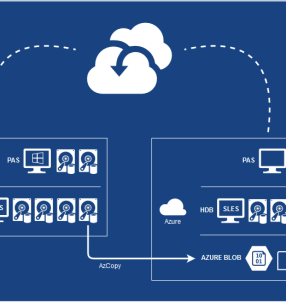New Delhi, Jan 14: The Supreme Court has issued notices to the Union Government among others on a petition that challenged the decision authorising 10 agencies to monitor, decrypt any computer.

The petition filed by advocate, M L Sharma challenged the validity of the order was passed by the Ministry for Home Affairs last week. The petitioner cited right to privacy, while challenging the order of the government.
The government had said that had authorised 10 central agencies to intercept, monitor and decrypt all the data contained in “any” computer system and asserted that this was being done to prevent “any unauthorised use of these powers”.
The new order, issued late Thursday night, “does not confer any new powers” to any security or law enforcement agency, the Union Home ministry said in a statement as the opposition termed the move an assault on fundamental rights and joined hands against it.
The order was brought out by the ‘cyber and information security’ division of the ministry under the authority of Home Secretary Rajiv Gauba. According to the order, 10 central probe and snoop agencies are now empowered under the Information Technology (IT) Act for computer interception and analysis, officials said. The agencies, according to the order, have been authorised “for the purpose of interception, monitoring and decryption of any information generated, transmitted, received or stored in any computer resource under the said Act (section 69 of the IT Act, 2000)”.
In a clarificatory statement, the Home ministry said adequate safeguards are provided in the IT Act, 2000 and similar provisions and procedures already exist in the Telegraph Act along with “identical safeguards”. The ministry said “each case” of such computer interception, monitoring and decryption is “to be approved by the competent authority, which is the Union home secretary”.
“The present notification is analogous to the authorisation issued under the Telegraph Act. The entire process is also subject to a robust review mechanism as in case of Telegraph Act. Every individual case will continue to require prior approval of Home ministry or state government. MHA has not delegated its powers to any law enforcement or security agency,” it said.
The ministry used Rule 4 of the IT (Procedure and Safeguards for Interception, Monitoring and Decryption of Information) Rules 2009 to elaborate its point. It provides that “the competent authority may authorise an agency of the Government to intercept, monitor or decrypt information generated, transmitted, received or stored in any computer resource for the purpose specified in sub-section (1) of Section 69 of the Act”, the ministry said.
Therefore, it said, the latest order has been issued “in accordance with rules framed in year 2009 and in vogue since then and no new powers have been conferred to any of the security or law enforcement agencies”.
The notification, it said, has been issued to notify the ISPs (internet service providers), TSPs (telecommunications service providers), intermediaries among others to codify the existing orders.
“These powers are also available to the competent authority in the state governments as per IT (Procedure and Safeguards for Interception, Monitoring and Decryption of Information) Rules 2009,” it added.
According to rule 22 of the IT (Procedure and Safeguards for Interception, Monitoring and Decryption of Information) Rules 2009, all cases of interception or monitoring or decryption are to be placed before the review committee, headed by the cabinet secretary, which shall meet at least once in two months to review such cases, the statement said. In case of state governments, it added, such cases are reviewed by a committee headed by the chief secretary concerned.
[“source=oneindia”]
| M | T | W | T | F | S | S |
|---|---|---|---|---|---|---|
| 1 | 2 | 3 | 4 | 5 | 6 | 7 |
| 8 | 9 | 10 | 11 | 12 | 13 | 14 |
| 15 | 16 | 17 | 18 | 19 | 20 | 21 |
| 22 | 23 | 24 | 25 | 26 | 27 | 28 |
| 29 | 30 | |||||























